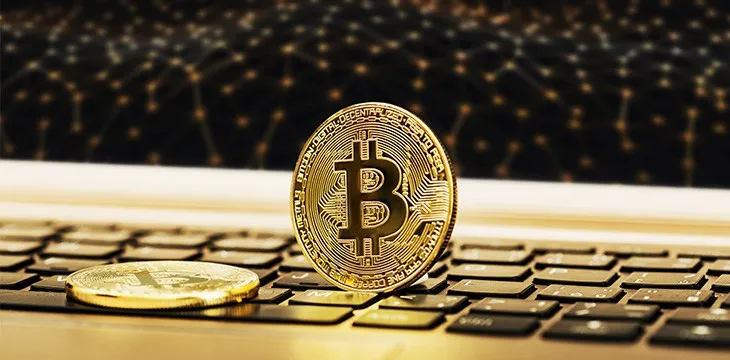|
Getting your Trinity Audio player ready...
|
Today’s traditional payments systems are inefficient and carry expensive overheads that are passed onto businesses and consumers which extracts value away from them as participants in the economy.
We take a look at how Bitcoin SV is creating the fastest and cheapest payment system in the world by comparing it to other cryptocurrencies and traditional payment systems, and how it will provide a better user experience, provide cheaper costs and maintain a safer level of security.
Bitcoin SV offers a fraction of a cent for transaction fees, and it will only continue to get cheaper
Bitcoin SV is the only blockchain that is aggressively scaling with the vision to become the single global ledger of everything, blocks will always have the capacity to handle high volumes of transactional throughput which will result in the lowest possible network fee that miners can offer.
Currently the standard price of a transaction fee that is set by the miners is 1 satoshi/byte (0.00000001 BSV). On average this results in less than 0.001 USD in transaction fees per transaction irrespective of the monetary value that is being sent.
And as block sizes continue to get larger, the technology improves and transaction volume increases, the cost per transaction will continue to become significantly less.
A recent example of this by mining company TAAL reduced their minimum fee from 1 satoshi/byte to 0.5/satoshis, displaying a continuous push towards a fee floor discovery that exists within an economy that scales.
How BSV compares against BTC and BCH
After successfully managing to scale the technology and restore the protocol as close as possible to its original design, BSV now has more capacity, transactional throughput and the cheapest fees out of three SHA-256 minable versions of Bitcoin.
| Bitcoin Core (BTC) | Bitcoin Cash (BCH) | Bitcoin SV (BSV) | |
| Hashing function | SHA-256 | SHA-256 | SHA-256 |
| Blocksize | 1 megabyte | 32 megabytes | 2000 megabytes, with limit to be removed Feb 2020 |
| Tx/second | 7 | 160 | 1000+
After blocksize limit is removed in Feb 2020: 10000+ |
| Median number of daily transactions (November 2019) | 310,627 | 39,390 | 388,725 |
| Median daily transaction fees (November 2019) | 0.369 USD
(0.000043 BTC) |
0.00073 USD
(0.0000027 BCH) |
0.00034USD
(0.0000028 BSV) |
Bitcoin was designed to be superior to the traditional payment systems
Satoshi Nakamoto said it best when he described the potential of the Bitcoin as a payment system in 2009:
Bitcoin can already scale much larger than that (Visa) with existing hardware for a fraction of the cost.
Today BSV can compete with VISA and Paypal’s payment network capacity to support enterprise level applications.
| VISA | PayPal | Bitcoin SV (BSV) | |
| Tx/second | 2,000 | 200 | 2GB Blocksize: 1000+
No Blocksize Limit (Feb 2020): 10000+ |
| Fee per transaction | 2% of the value of transaction + base costs | 2.9% of the value + 0.30 cents | Avg less than 0.001 USD per transaction at 1 sat/byte |
Let’s put these figures to use with a real-world example of how an enterprise could save significant costs by using BSV instead of traditional payment systems
What did Amazon do in sales during Amazon Prime Day in 2019?
Consumers purchased over 175 million products totaling US$7.16 billion in sales on the biggest day of the year that they put on for their exclusive members.
The overhead for using a traditional payment processor would cost on average 2-3% for the merchant fees associated to facilitate the transaction.
Let’s do the math.
For US$7.16 billion in sales generated, multiplied by 2%, the merchant fees would have been approximately US$143 million.
If Amazon were to use the BSV payment system to process these Bitcoin transactions, it would be based off the 175 million products sold irrespective of the value amount, charged at the average base rate of US$0.001 per transaction.
The total amount in fees would come to US$175,000.
Without the intermediaries collecting a small percentage of every transaction based off the value of purchase, the difference is astronomical. The costs would be less than 0.1% of what they are paying today using traditional payment systems.
These savings could have been passed onto the consumer, who in turn would be more likely to spend more at Amazon and any increased revenue would go directly to Amazon to further grow their company.
As Bitcoin continues to scale, these costs in fees will continue to have downward pressure with new competitive fee floors found between the miners and consumers in a free market. This continuous minimum transaction fee price discovery would especially be beneficial for large enterprises who would be able to negotiate a stable fee contract for their transactions with a mining pool, reducing their costs down even more significantly.
The value proposition is simply too great to ignore.
Learn more about how Bitcoin SV is paving the way for the future of payments and financial services at the upcoming CoinGeek Conference, taking place at Old Billingsgate in London on February 20-21, 2020.

 07-09-2025
07-09-2025 





